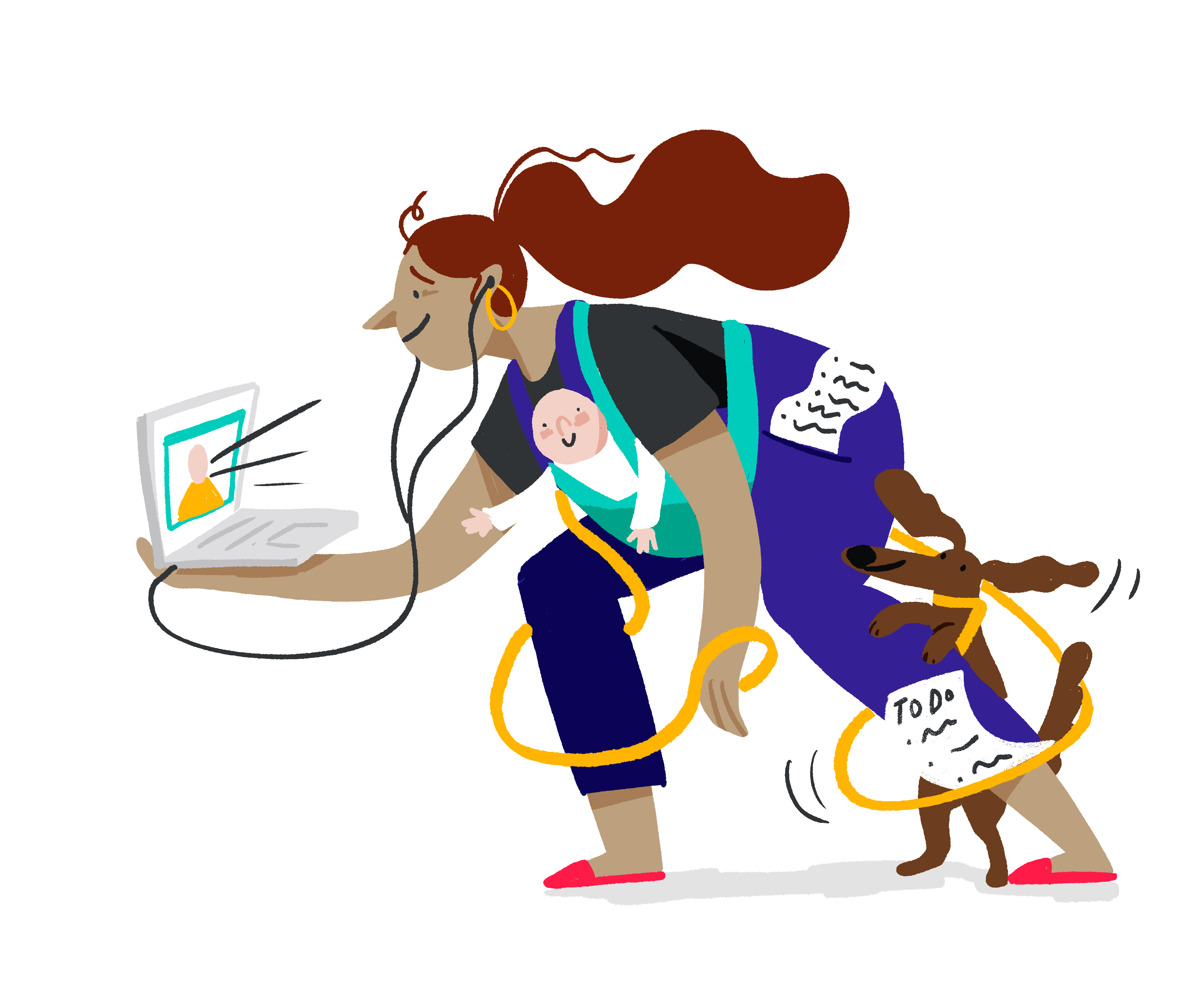

It’s been 12 months since UK schools first closed to protect the spread of Covid-19. And chances are, if we’d told parents a year ago that they’d have kids learning at home for the majority of the next year, they wouldn’t have believed us.
Whatever happens next, we know the pandemic has made parents more involved in their teens’ education than before, and they’ve learnt a lot about how their child learns. We surveyed thousands of parents from across the UK to find out about their homeschooling experience, what they did differently the second time around, and what they’d discovered in the process. Here are 12 insights into how parents homeschooled in 2021.
1. It’s not been easy
You don’t need a news flash – or a survey – to tell you that homeschooling during a pandemic has been tough on parents. Worry over your family’s health, kids’ education and keeping everyone’s mood in check has left parents spinning a few more plates than they’re comfortable with.
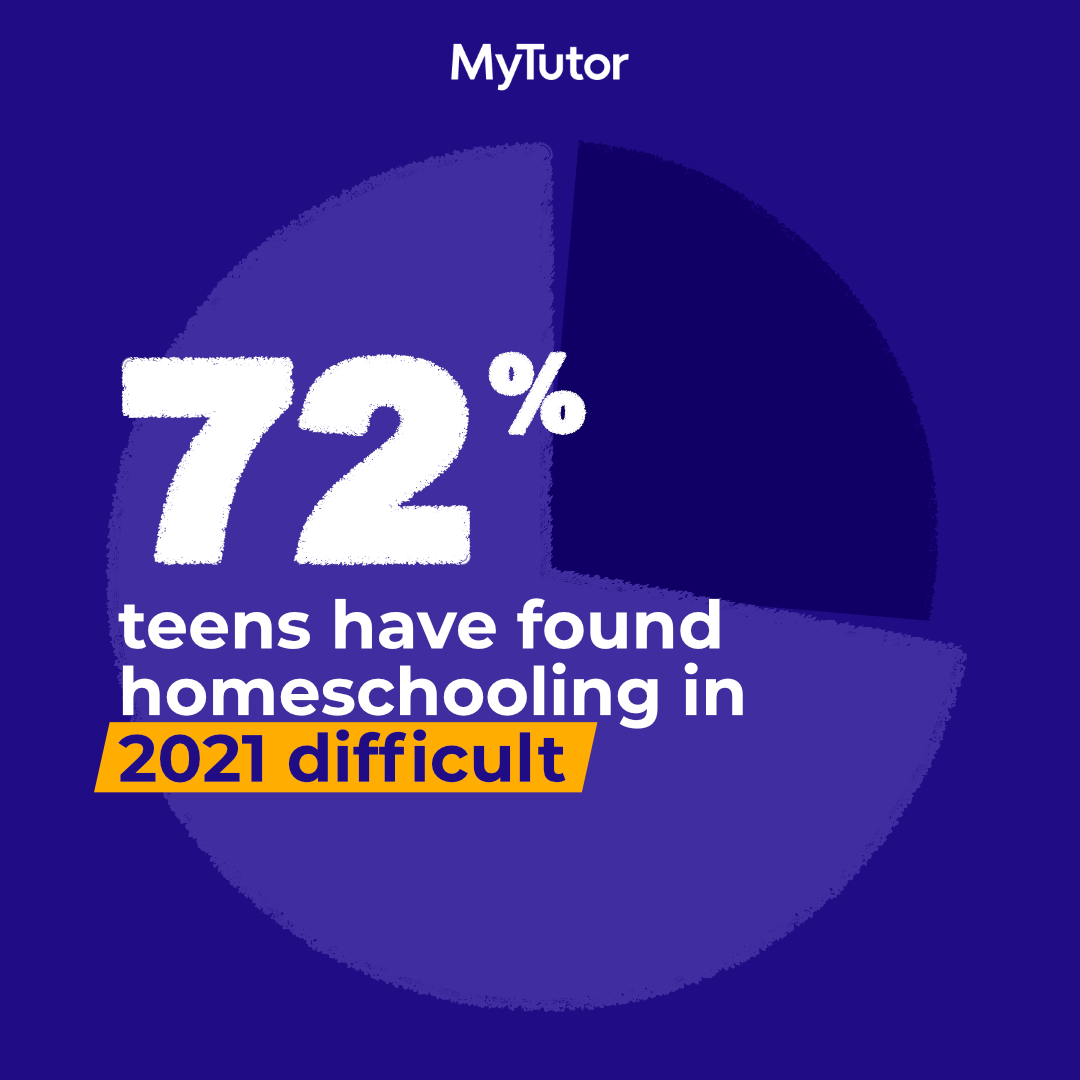

2. #Homeschool is harder than #WFH
Working from home comes with its challenges – especially when you’re balancing it with parenting. But, given the choice, it looks like parents would take hours of Zoom calls over getting their head around the GCSE Maths syllabus any day.
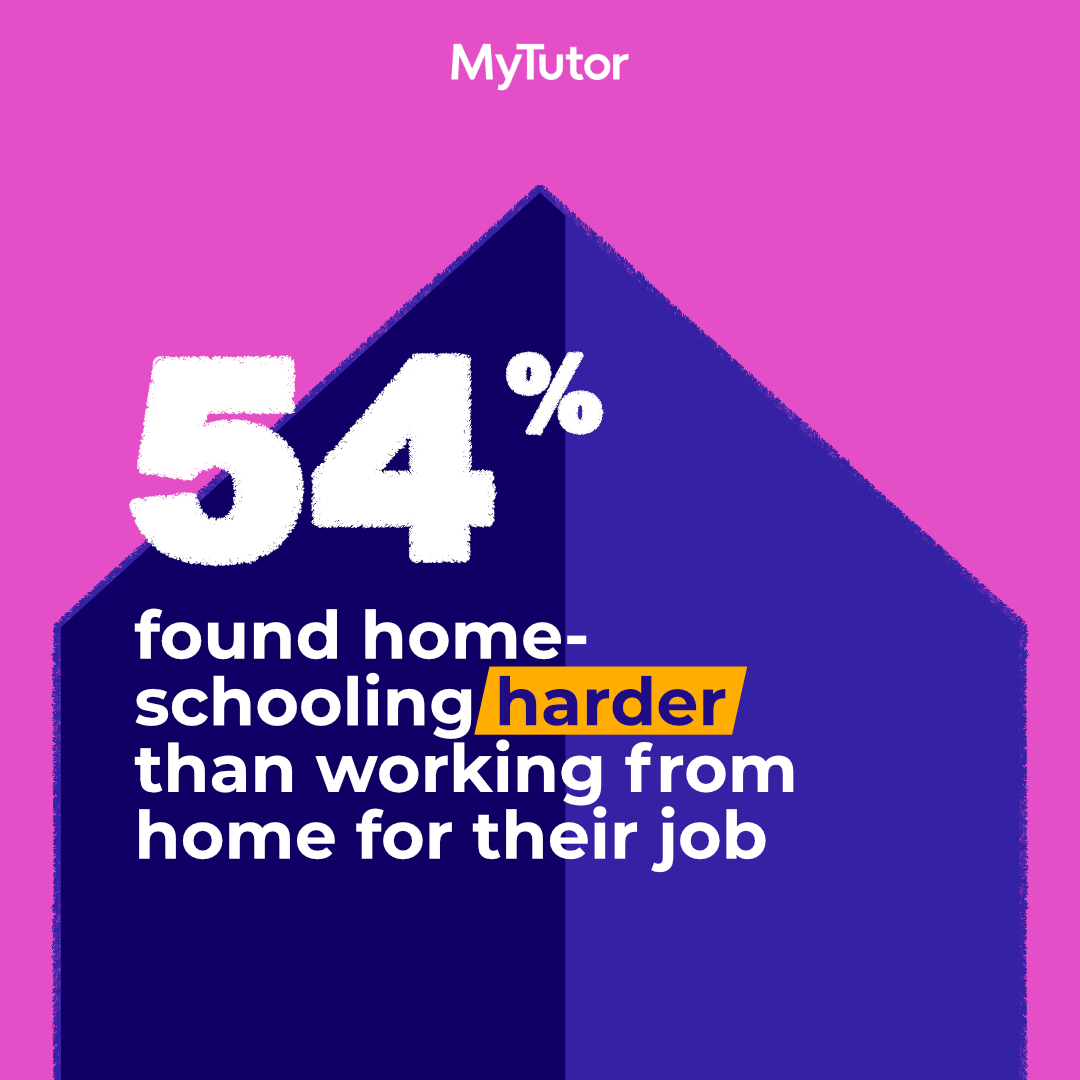

3. Many parents worried they’d let their kids down
Let’s face it – it works best for everyone when teachers get to teach, and parents get to parent (unless you’re a parent and a teacher, in which case you’re a homeschool superhero). When schools closed (both times), a lot of parents felt they had to double up as a classroom teacher over night. At MyTutor, we even had some parents booking GCSE-level lessons so they could get to grips with a subject enough to teach it to their child (they missed a trick there!). The truth is, no parent is an expert in every subject, and most don’t have the expertise to teach at GCSE or A Level, so they should really let themselves off the hook.
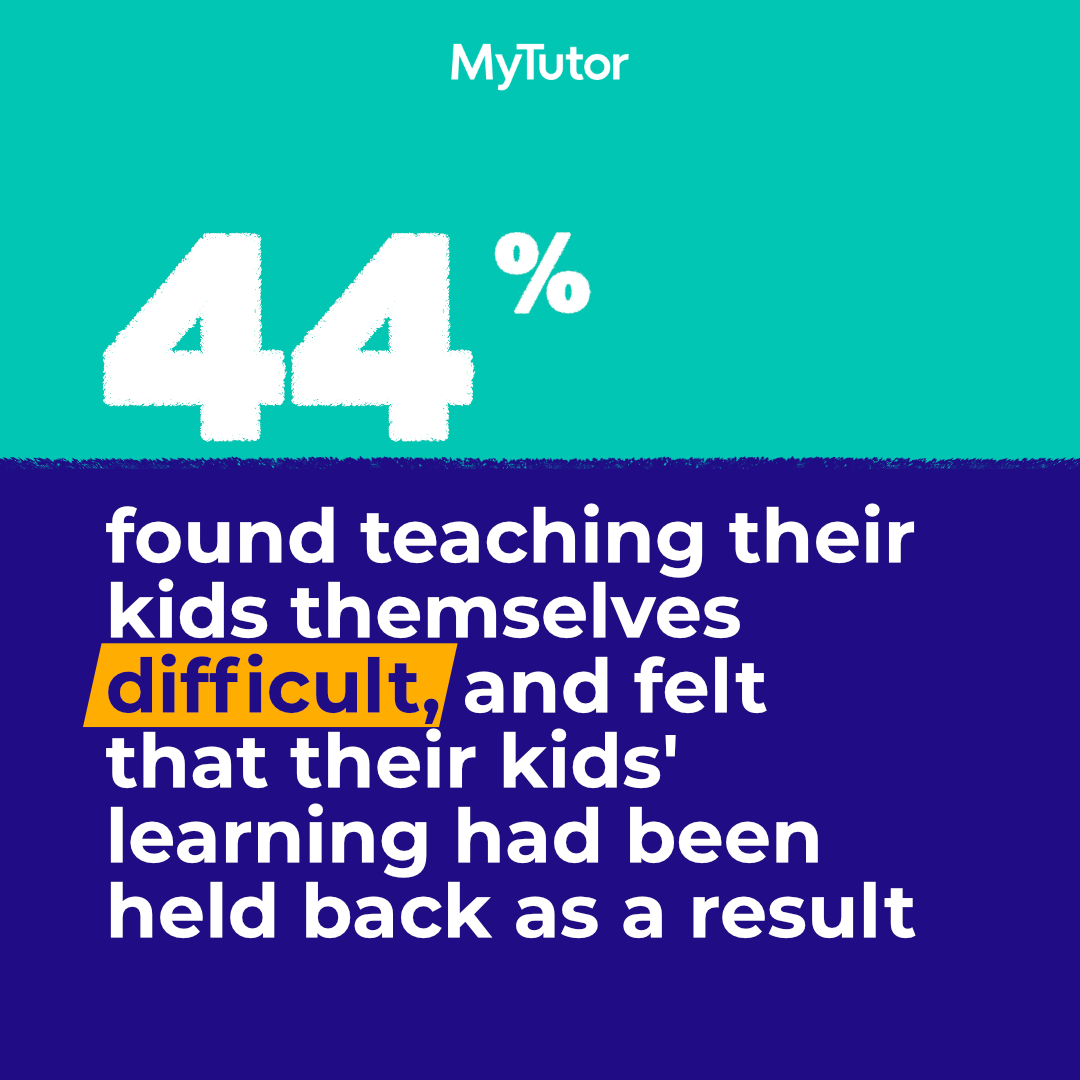

4. The majority of parents have a better understanding of how their child learns
Although it’s been a hell of a ride, we found that 72% parents felt they’ve learnt more about their child’s learning needs. And with that, even as schools go back they feel more confident in supporting their studies from home. You know what they say about every cloud…
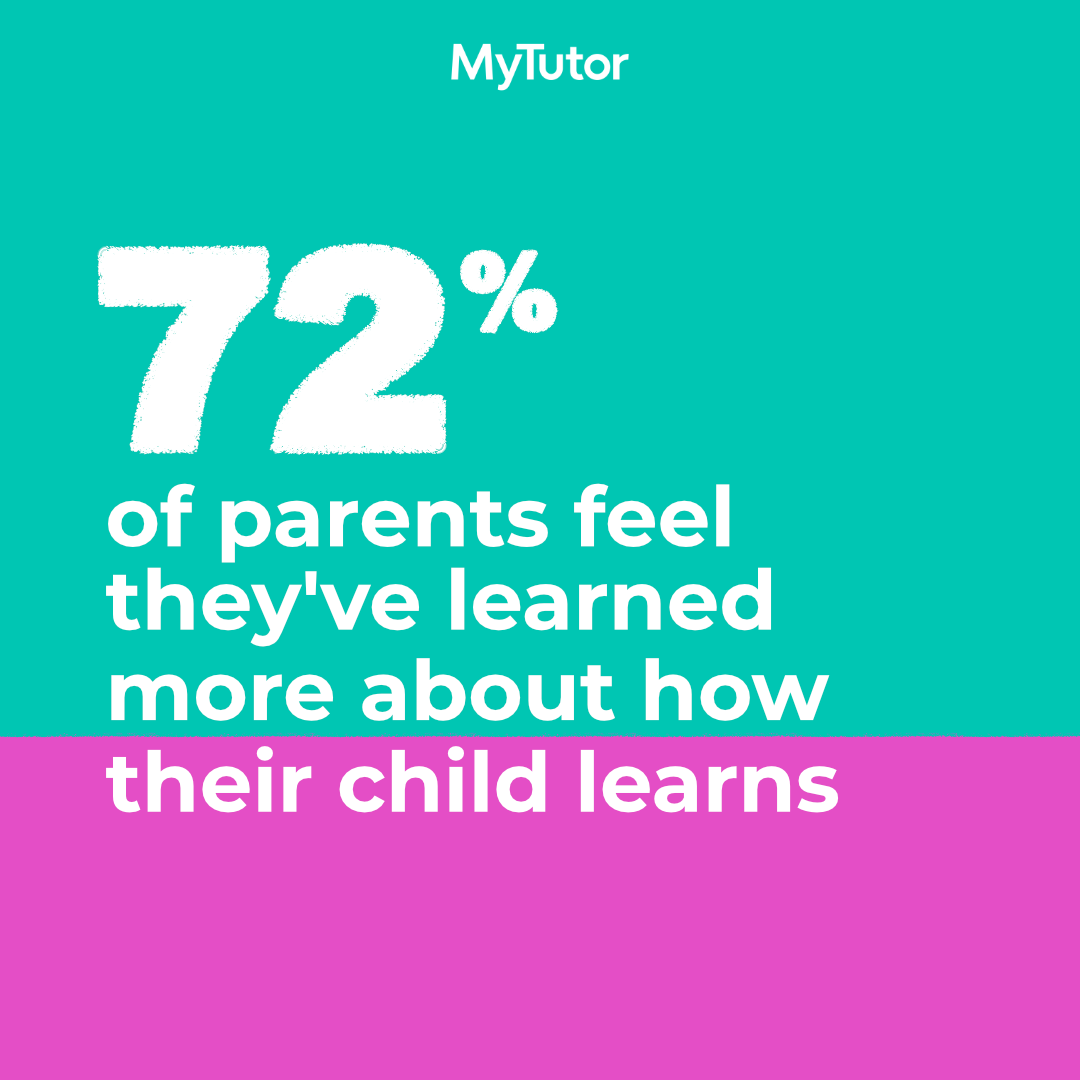

5. This time around, schools were more ready for remote teaching
With the first lockdown, of course, schools closed with just a few days notice, and most of us were blindsided by the impact of the pandemic (you could say it was unprecendented!). Even in January 2021, teachers were given barely a few days notice to adapt their teaching to a remote set-up, but by the second time around many were ready to rock.
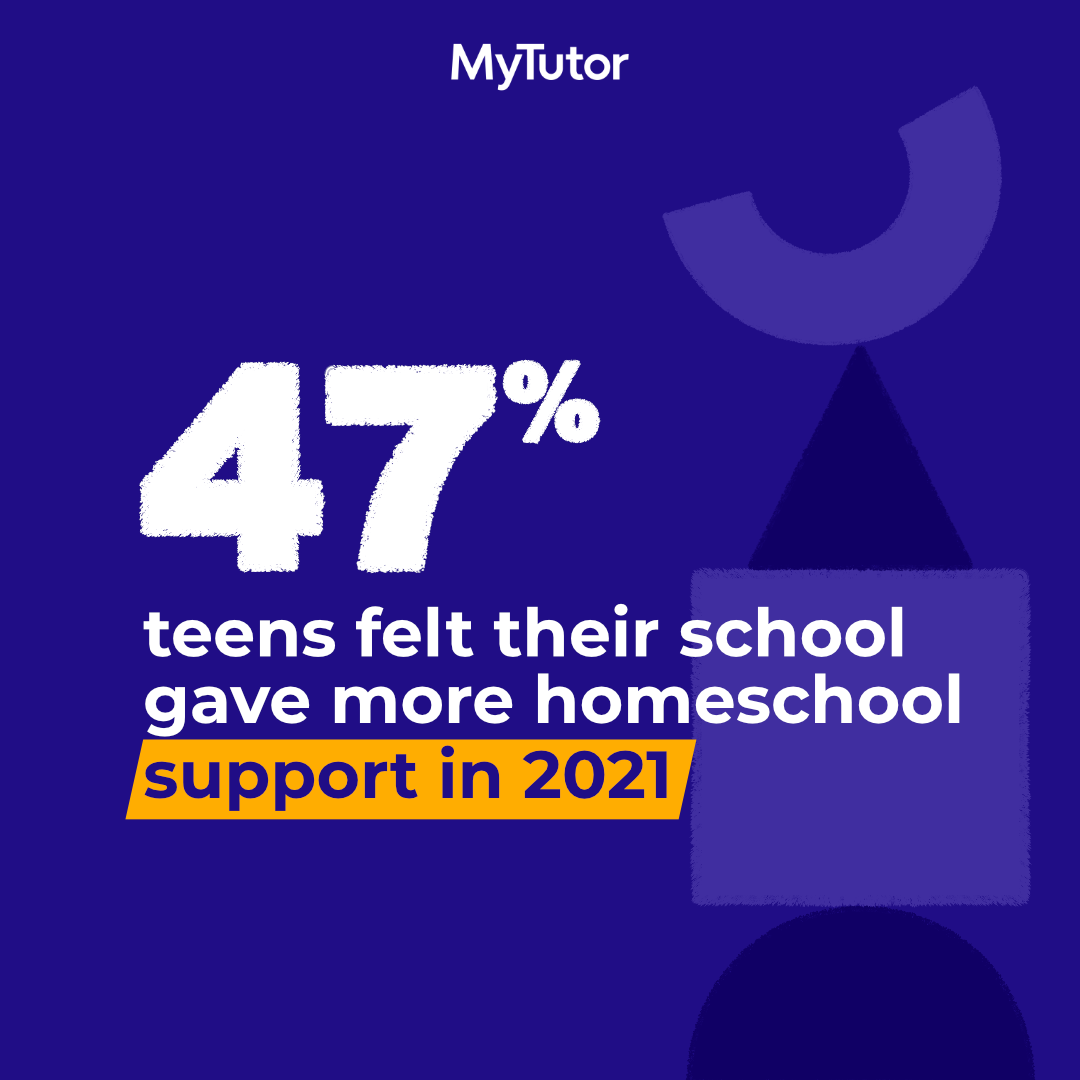

6. Most parents feel their child has developed learning gaps
It’s no surprise that the majority of parents feel that their child has developed new learning gaps since March 2020. Even with lots of support with their home learning, the past 12 months have disrupted all teens’ learning, and in that way everyone is at least in the same boat.
Now that we can start to look towards a brighter, more (new) normal future though, teens can look to filling in learning gaps and get back on track. Whether it’s with support from their school, a 1-1 online tutor or focused study time after school, with the roadmap set out we can tentatively start to heal over the disruption that the pandemic has caused to kids’ education. We’re not saying it’ll be easy, but the future is bright.
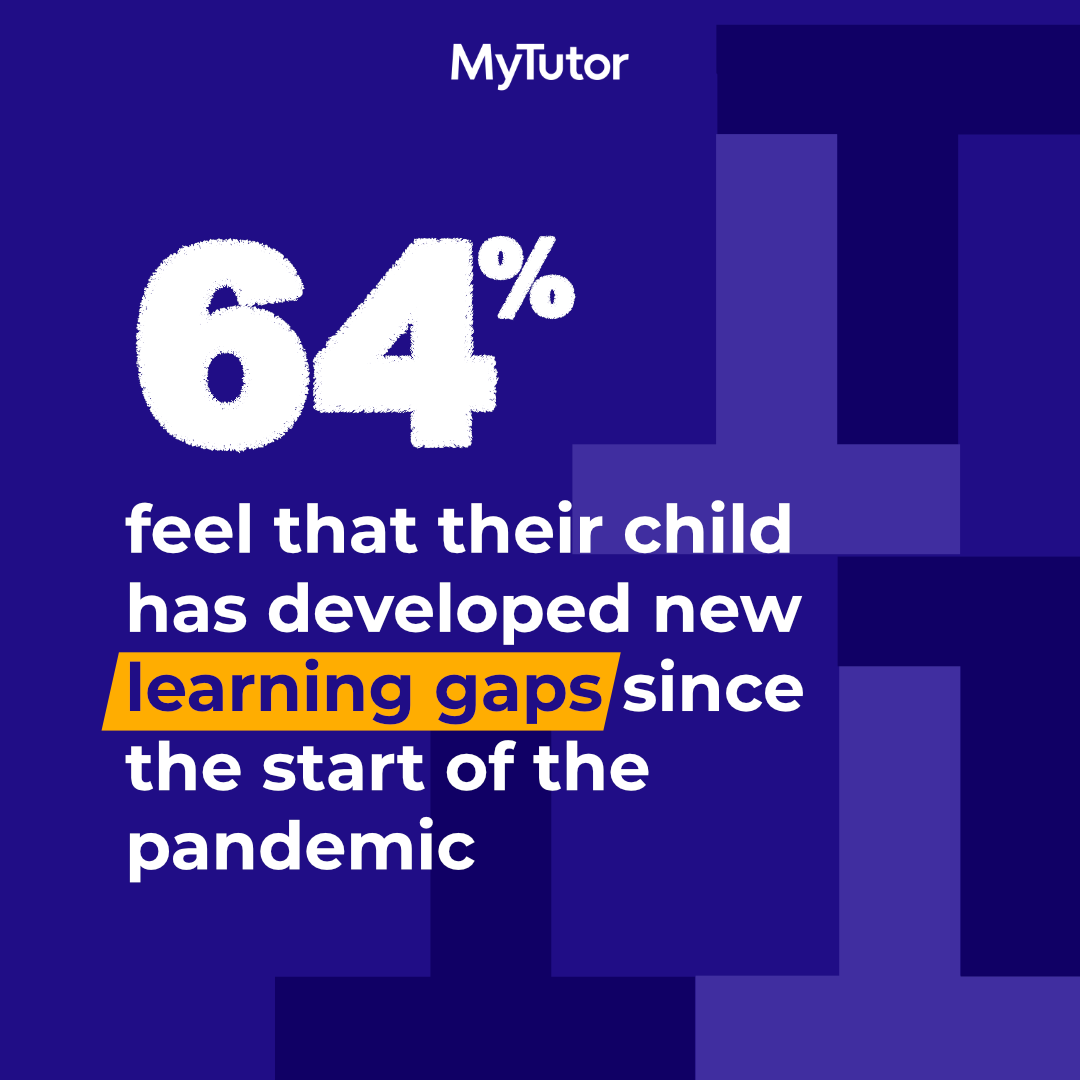

7. A lot of parents decided to take it easy this time
By the time schools closed in January 2021, the pandemic had been going on for 10 months, and teens were feeling it. A lot of parents in the first lockdown felt the need to be strict with keeping school timetables and making sure kids stayed on top of all their studies; the second time around not so much.
The effect of school closures, exam cancellations, a “mutant algorithm”, more exam cancellations and being stuck at home for months on end has, unsurprisingly, taken its toll on a lot of teens’ mental health. So by the time schools closed again, 42% parents decided to put less academic pressure on their teen each day.
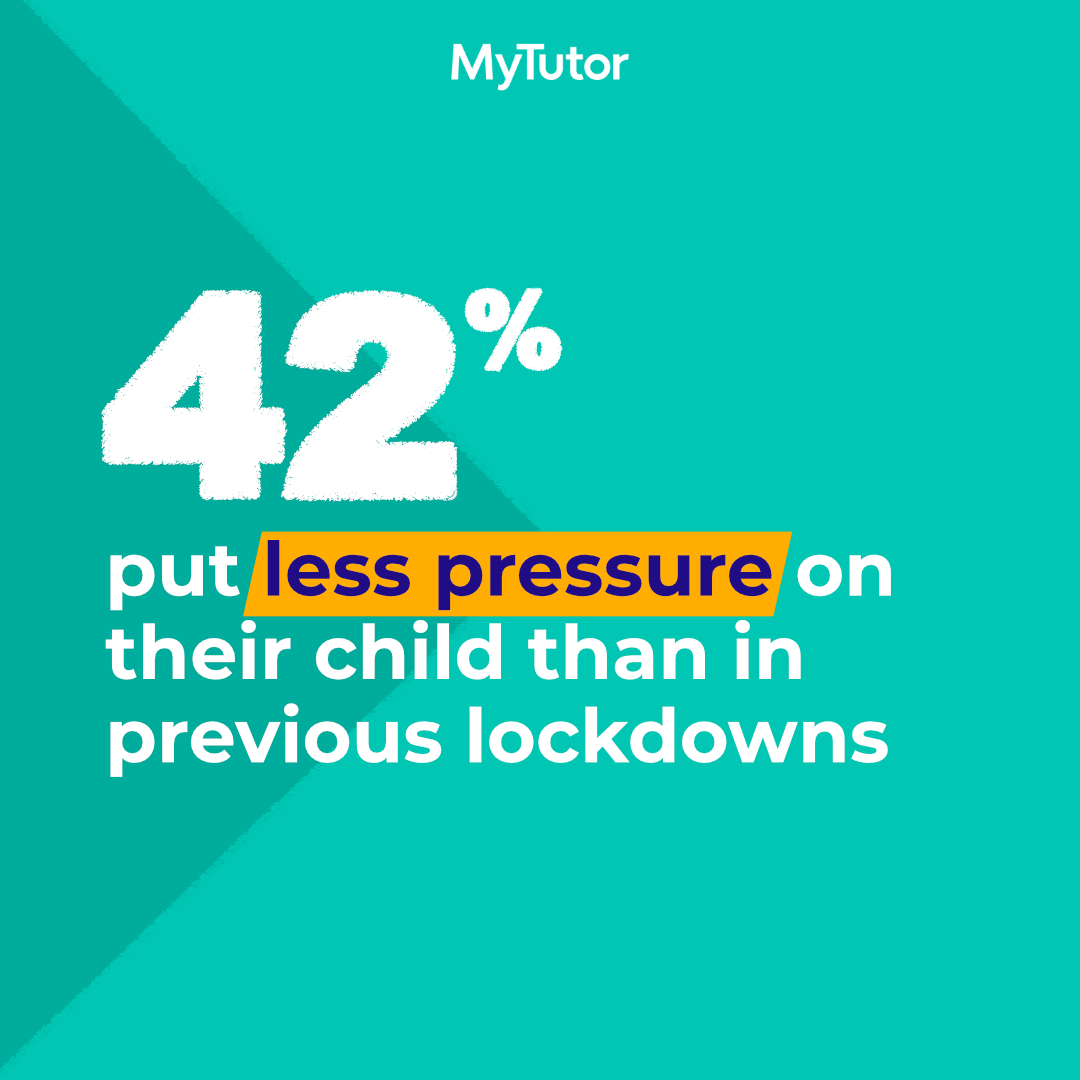

8. The 2021 grading system is making teens stressed
For generations, exam stress has been a rite of passage for teens. But since they were cancelled last year and this year, a lot of teens have made to A Levels without sitting one. And although that means they can’t get anxious about exams, there’s still plenty of room for teens to worry about how they’ll achieve good grades without them.
Since the new grade awarding system was finalised at the start of this year, where they’ll be awarded by teachers based on schoolwork throughout the year, many teens are worried that they won’t get the chance to prove themselves as they would have in exams. Lots of teens and parents feel that this year’s system also puts more pressure on their day-to-day learning, adding more pressure to their homeschool learning.
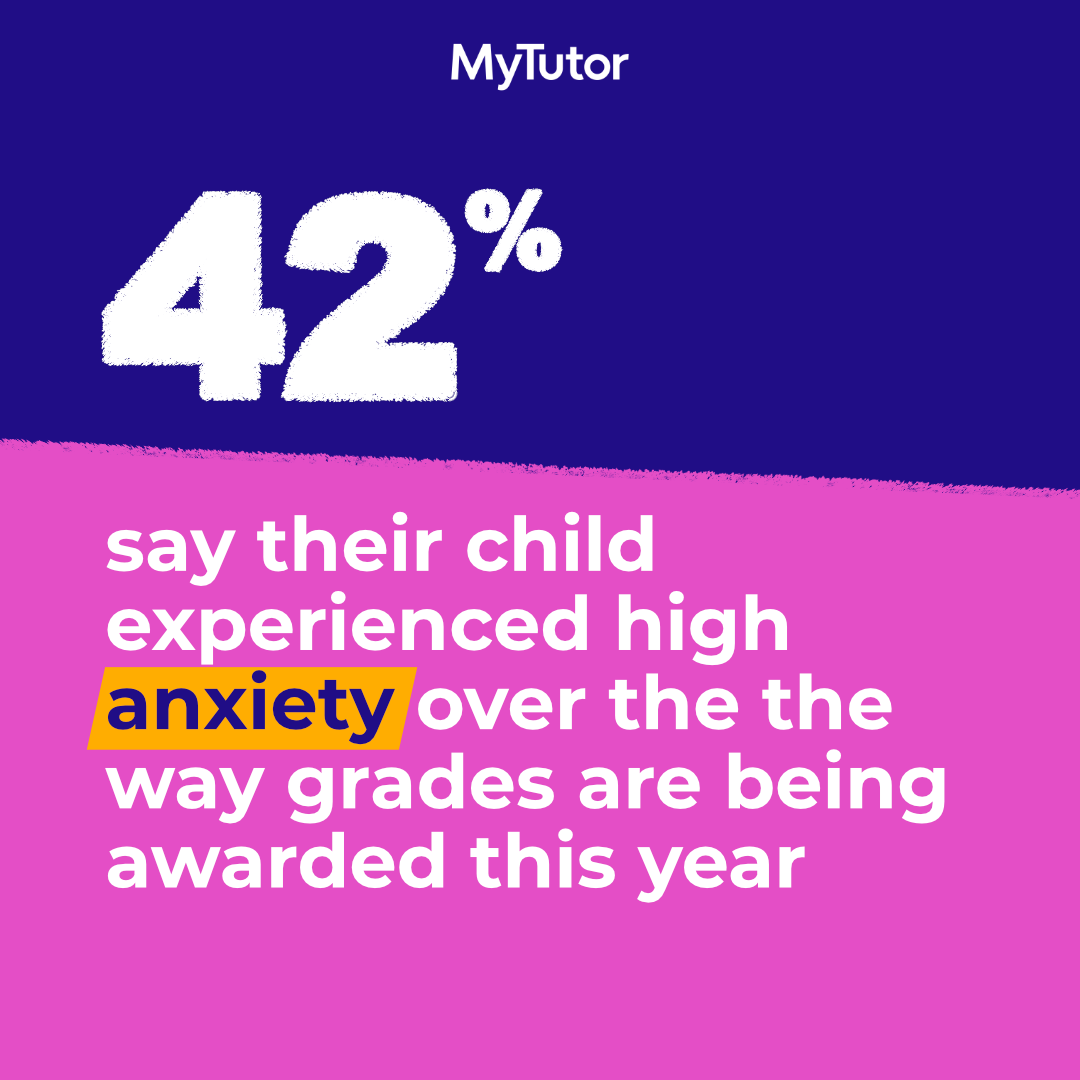

9. The majority of teens used regular breaks to control their anxiety
Studying for 6 hours at a time might sound impressive (/intense), but taking regular breaks is actually better for concentration and learning. In a normal school day, teens would get a short break, a walk a chat and possibly a quick gossip between each class, so working 5-10 minute breaks into the remote school day makes perfect sense. And they seem to be pretty well aware of this, as we’ve found that the vast majority of teens regular breaks timetabled into their remote school day.
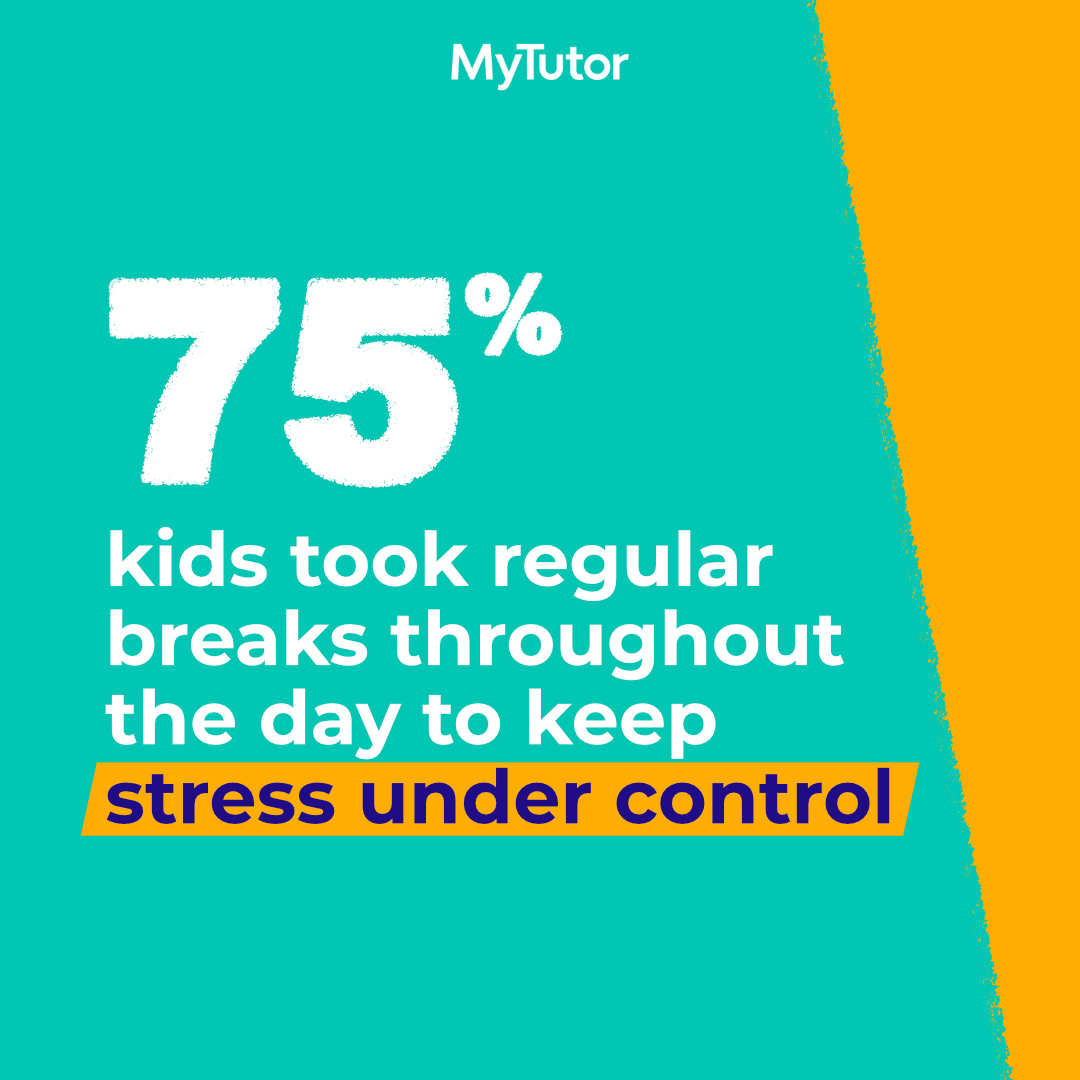

10. Most parents relaxed over screen time
Pre-pandemic, a top concern for parents was their teens spending too much time staring at screens. Whether it was TV, gaming, social media or even, dare we say, online learning, parents often found themselves setting limits o n the number of hours they could spend on their phones, even confiscating phones from time to time.
A year of lockdowns later, the 76% parents have changed their tune. In the context of school closures and isolation from their friends, screen time became a lifeline in the form of remote socialising, supportive online tuition and much-needed relaxing. Some screen time is still better than others of course, but for now families have let screen time become their friend.
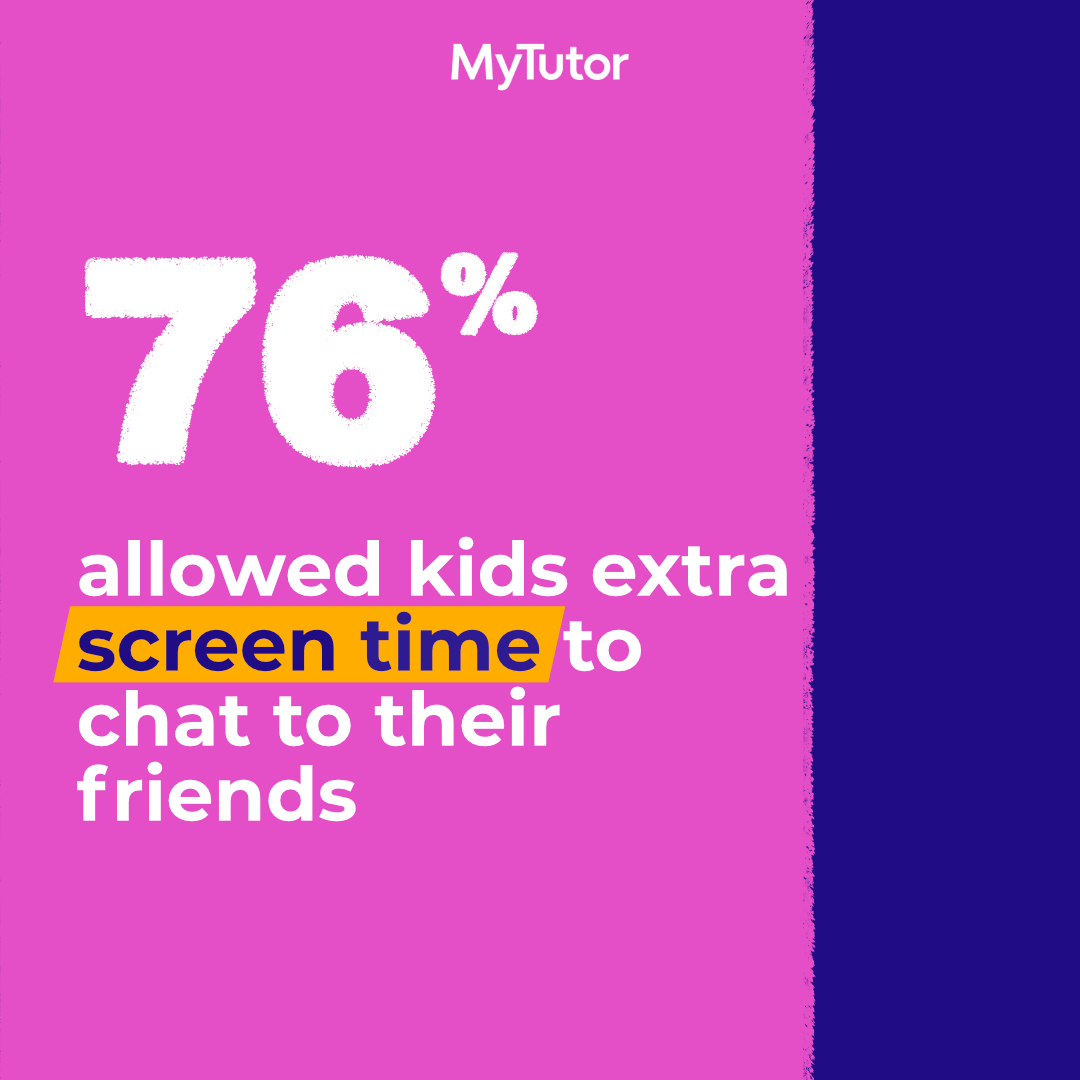

11. Routine is religion
Whenever we asked parents their number one tip for successful homeschooling, every single one told us that routine was everything. For families everywhere, it gave teens a sense of structure, reduced daily anxiety and kept everyone going when we didn’t know how long schools would stay closed for. Keeping a study routine – or any regular routine in life – massively helps with productivity and mood, and it’s a healthy habit for life, not just the pandemic.
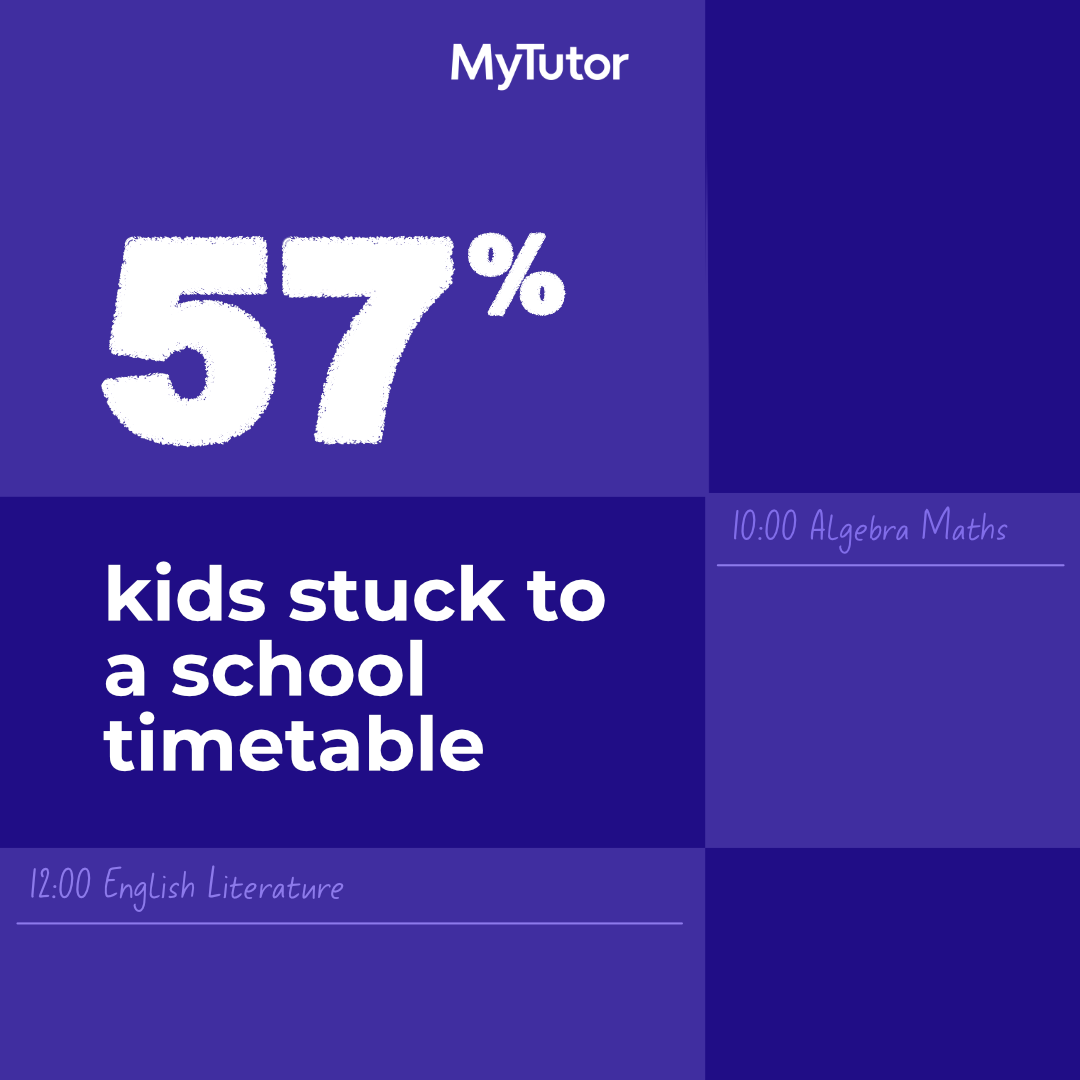

12. Keeping a personal study space is key
As well as keeping a regular study routine, having a go-to quiet place to study was crucial for the majority of teens during homeschooling. Especially if they had other siblings and/or parents working at home too, having their own place to keep their books, notes, computer and timetable helped teens everywhere stay on the ball with their studies.
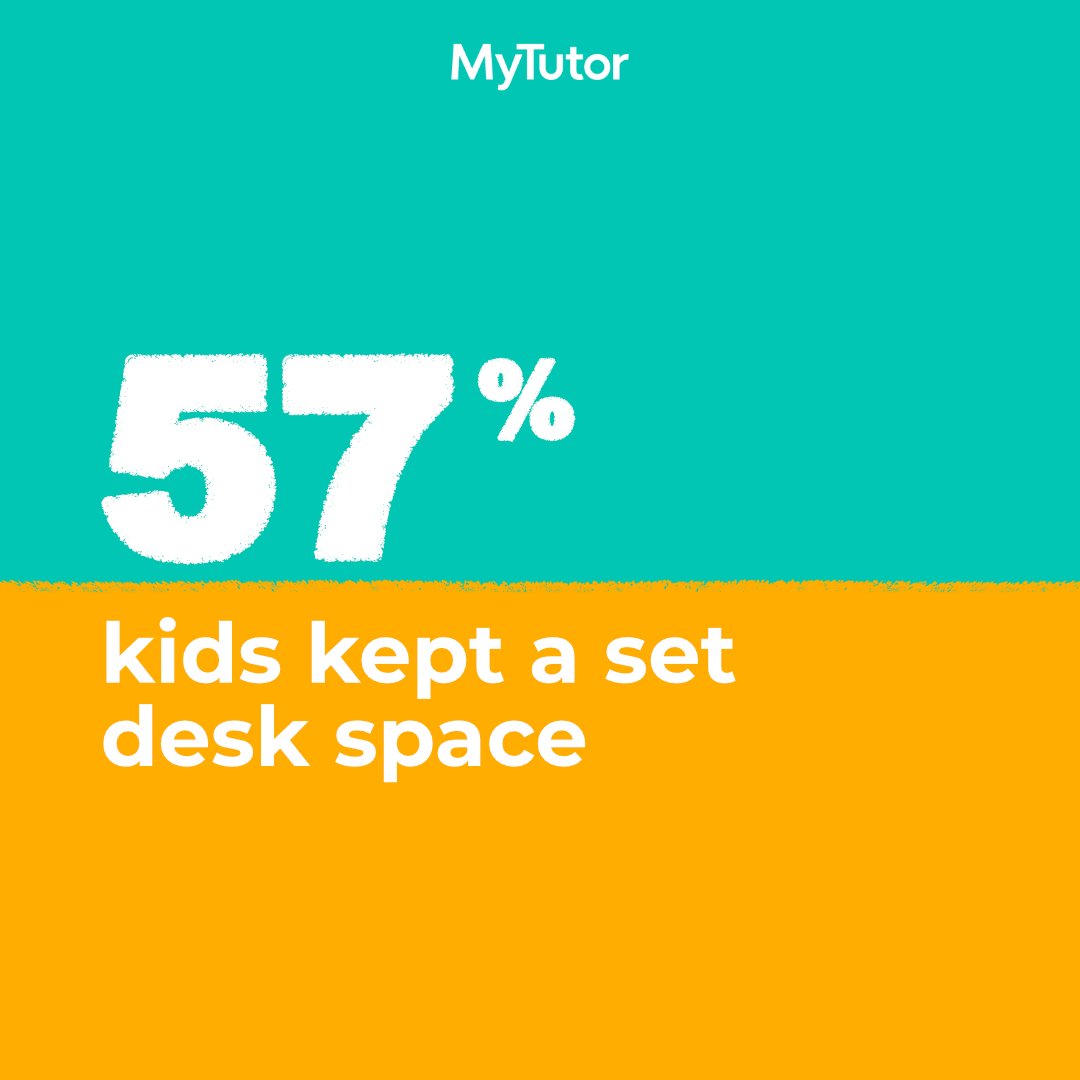

And there we have it! Parents – however you’ve found homeschooling over the past year, you deserve a medal, a trophy and a fanfare to say well done. You might have to manage with a pat on the back instead.
